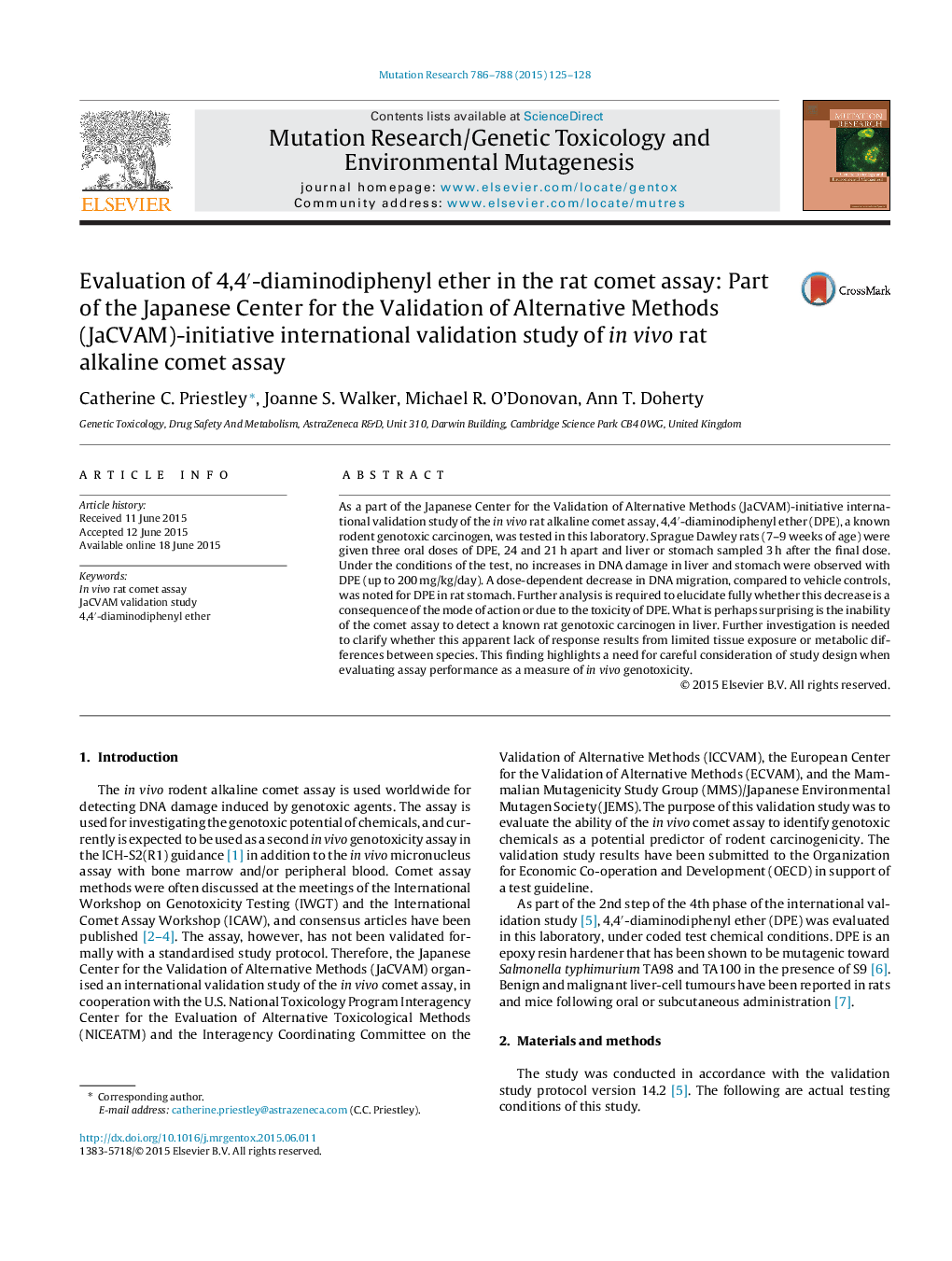| Article ID | Journal | Published Year | Pages | File Type |
|---|---|---|---|---|
| 8456370 | Mutation Research/Genetic Toxicology and Environmental Mutagenesis | 2015 | 4 Pages |
Abstract
As a part of the Japanese Center for the Validation of Alternative Methods (JaCVAM)-initiative international validation study of the in vivo rat alkaline comet assay, 4,4â²-diaminodiphenyl ether (DPE), a known rodent genotoxic carcinogen, was tested in this laboratory. Sprague Dawley rats (7-9 weeks of age) were given three oral doses of DPE, 24 and 21Â h apart and liver or stomach sampled 3Â h after the final dose. Under the conditions of the test, no increases in DNA damage in liver and stomach were observed with DPE (up to 200Â mg/kg/day). A dose-dependent decrease in DNA migration, compared to vehicle controls, was noted for DPE in rat stomach. Further analysis is required to elucidate fully whether this decrease is a consequence of the mode of action or due to the toxicity of DPE. What is perhaps surprising is the inability of the comet assay to detect a known rat genotoxic carcinogen in liver. Further investigation is needed to clarify whether this apparent lack of response results from limited tissue exposure or metabolic differences between species. This finding highlights a need for careful consideration of study design when evaluating assay performance as a measure of in vivo genotoxicity.
Keywords
Related Topics
Life Sciences
Biochemistry, Genetics and Molecular Biology
Cancer Research
Authors
Catherine C. Priestley, Joanne S. Walker, Michael R. O'Donovan, Ann T. Doherty,
